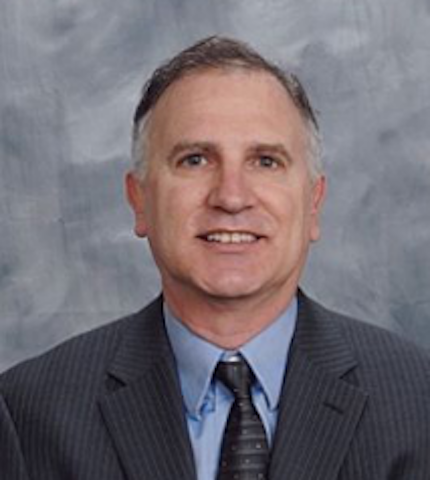 The Health Information Technology for Economic and Clinical Health (HITECH) Act provided providers with a significant financial incentive to increase the adoption and use of EHRs. EHR vendors were required to conduct and report on a summative usability evaluation of their system as part of the Stage 2 Meaningful Use program (The ONC 2014 Edition Certification). However, a recent report funded by the Agency for Healthcare Research and Quality (AHRQ), identified several “issues” with the certified EHR vendors in the processes, practices and use of standards and best practices with regard to usability and human factors.
The Health Information Technology for Economic and Clinical Health (HITECH) Act provided providers with a significant financial incentive to increase the adoption and use of EHRs. EHR vendors were required to conduct and report on a summative usability evaluation of their system as part of the Stage 2 Meaningful Use program (The ONC 2014 Edition Certification). However, a recent report funded by the Agency for Healthcare Research and Quality (AHRQ), identified several “issues” with the certified EHR vendors in the processes, practices and use of standards and best practices with regard to usability and human factors.
News
Plug and Play Healthcare: Open Middleware and the Emergence of a Functional Interoperability Framework
 “A middleware architecture has been shown to be the best technological solution for addressing the problem of EHR interoperability. The middleware platform facilitates the transparent, yet secure, access of patient health data, directly from the various databases where it is stored. A server-based middleware framework supporting access to the various patient health data stores allows for a scalable, unified and standardized platform for applications to be developed upon. The middleware architectural design has been successfully used to link data from multiple databases, irrespective to the database platform or where the database is located,” says Voltz. Read More »
“A middleware architecture has been shown to be the best technological solution for addressing the problem of EHR interoperability. The middleware platform facilitates the transparent, yet secure, access of patient health data, directly from the various databases where it is stored. A server-based middleware framework supporting access to the various patient health data stores allows for a scalable, unified and standardized platform for applications to be developed upon. The middleware architectural design has been successfully used to link data from multiple databases, irrespective to the database platform or where the database is located,” says Voltz. Read More »
- Login to post comments
- Feature Story
Cory Doctorow on the Real-World Dangers of Digital Rights Management
 Cory Doctorow gave a fast-paced keynote at OSCON 2016 this year that served as a warning message against DRM (digital rights management): Open, closed, and demon haunted: An Internet of Things that act like inkjet printers. Cory's example of what DRM and copyright can look like in the physical world: Let's say you're building a conference center and your engineer says that he's going to make sure the ceiling won't fall down on your attendees, but he's not going to share the math he's using to do those calculates because it's proprietary. Would you want to enter that conference center? I wouldn't...
Cory Doctorow gave a fast-paced keynote at OSCON 2016 this year that served as a warning message against DRM (digital rights management): Open, closed, and demon haunted: An Internet of Things that act like inkjet printers. Cory's example of what DRM and copyright can look like in the physical world: Let's say you're building a conference center and your engineer says that he's going to make sure the ceiling won't fall down on your attendees, but he's not going to share the math he's using to do those calculates because it's proprietary. Would you want to enter that conference center? I wouldn't...
- Login to post comments
- News
Building a Bootstrapped Business on Open Source
 Back in 2009, our day-to-day life at Planio was writing software for clients. Client work is often fun, but there can also be a feeling that you're stuck on a hamster wheel of endlessly churning through projects, always looking for new customers. We used Redmine, an open source project management tool built using the Ruby on Rails framework, to manage these projects. And then something curious started happening. We'd wrap up a project and our client would come to us asking if we'd consider letting them keep the project management tool...
Back in 2009, our day-to-day life at Planio was writing software for clients. Client work is often fun, but there can also be a feeling that you're stuck on a hamster wheel of endlessly churning through projects, always looking for new customers. We used Redmine, an open source project management tool built using the Ruby on Rails framework, to manage these projects. And then something curious started happening. We'd wrap up a project and our client would come to us asking if we'd consider letting them keep the project management tool...
- Login to post comments
- News
5 Keys to Hacking Your Community. What Works?
 One of the many great keynotes given at the Community Leadership Summit (CLS) this year was by Rod Martin of Mautic, creator of marketing automation software. Rod spoke to us about the five key secrets to growth hacking your community. If you're like me, you might be wondering what growth hacking is? Growth hacking is a fancy way to say throwing everything against the wall to see what sticks / works. Rod's talk stuck with me because he presented his argument by using a series of words and definitions to make it completely clear what it is we're trying to do when building our communities...
One of the many great keynotes given at the Community Leadership Summit (CLS) this year was by Rod Martin of Mautic, creator of marketing automation software. Rod spoke to us about the five key secrets to growth hacking your community. If you're like me, you might be wondering what growth hacking is? Growth hacking is a fancy way to say throwing everything against the wall to see what sticks / works. Rod's talk stuck with me because he presented his argument by using a series of words and definitions to make it completely clear what it is we're trying to do when building our communities...
- Login to post comments
- News
Computer Science Professor on the Changing Face of Tech
 Dr. Kyla McMullen spoke at OSCON's morning keynote session today. She was the first African-American woman to graduate with a PhD in Computer Science and Engineering at the University of Michigan. And it says a lot about tech's lack of inclusiveness that this landmark achievement happened in 2012. These days she is Assistant Professor in Computer Science at the University of Florida. In her keynote, Dr. McMullen explained that as a child she was a tinkerer and reader—like most of us in the room...
Dr. Kyla McMullen spoke at OSCON's morning keynote session today. She was the first African-American woman to graduate with a PhD in Computer Science and Engineering at the University of Michigan. And it says a lot about tech's lack of inclusiveness that this landmark achievement happened in 2012. These days she is Assistant Professor in Computer Science at the University of Florida. In her keynote, Dr. McMullen explained that as a child she was a tinkerer and reader—like most of us in the room...
- Login to post comments
- News
Does Healthcare Need More Programmers? Or, More MacGyvers?
 Health care is full of black boxes. As much as we think we've learned about the human body over the last hundred years, we're still constantly reminded about how little we actually understand its working (e.g., the microbiome). As much time and money we spend training physicians, much of how they diagnose and design treatments for patients remain a mystery. And does anyone know why we always have to fill out so many damn forms? The many organizations working on applying AI to health care are trying to figure out some of these black boxes, although their solutions may come at the price of new black boxes. I hope, though, that we don't just turn things over to AI. We still need people to figure out the problems.
Health care is full of black boxes. As much as we think we've learned about the human body over the last hundred years, we're still constantly reminded about how little we actually understand its working (e.g., the microbiome). As much time and money we spend training physicians, much of how they diagnose and design treatments for patients remain a mystery. And does anyone know why we always have to fill out so many damn forms? The many organizations working on applying AI to health care are trying to figure out some of these black boxes, although their solutions may come at the price of new black boxes. I hope, though, that we don't just turn things over to AI. We still need people to figure out the problems.
- Login to post comments
- News
EHR Usability Gaps -- ONC and AHRQ Identify Serious Shortcomings of Certified EHRs
- Login to post comments
- News
Rethinking MACRA, a Follow Up by John Halamka
 In my blog posts, I speak from the heart without a specific political or economic motivation. Although I’ve not written about highly controversial subjects such as religion, gun control, or reproductive policy, some of the topics in my posts can be polarizing. Such as was the case with MACRA. Some agreed with my initial analysis that clinicians will have a hard time translating complex MACRA payment processes into altered clinical behavior. Others felt I was overharsh, negative and inappropriate. It’s never my intent to criticize people, instead I want encourage dialog about ideas. In that spirit, here’s my opinion on how we should evolve from fee for service to pay for value/outcomes...
In my blog posts, I speak from the heart without a specific political or economic motivation. Although I’ve not written about highly controversial subjects such as religion, gun control, or reproductive policy, some of the topics in my posts can be polarizing. Such as was the case with MACRA. Some agreed with my initial analysis that clinicians will have a hard time translating complex MACRA payment processes into altered clinical behavior. Others felt I was overharsh, negative and inappropriate. It’s never my intent to criticize people, instead I want encourage dialog about ideas. In that spirit, here’s my opinion on how we should evolve from fee for service to pay for value/outcomes...
- Login to post comments
- News
An in-depth guide to turning a product into an open source project
 One occasionally runs into a company trying to build an open source project out of an existing product. This is a nuanced problem. This is not a company that owns a project published under an open source license trying to also ship a product of the same name (e.g. Docker, MySQL), but the situation shares many of the same problems. Neither is this a company building products out of open source projects to which they contribute but don't control (e.g. Red Hat's RHEL). This is a company with an existing product revenue stream trying to create a project out of the product...
One occasionally runs into a company trying to build an open source project out of an existing product. This is a nuanced problem. This is not a company that owns a project published under an open source license trying to also ship a product of the same name (e.g. Docker, MySQL), but the situation shares many of the same problems. Neither is this a company building products out of open source projects to which they contribute but don't control (e.g. Red Hat's RHEL). This is a company with an existing product revenue stream trying to create a project out of the product...
- Login to post comments
- News
Open Textbooks 4 Africa
 The first Open Textbook Summit in Africa was hosted in Cape Town on March 11-12 by Open Textbooks for Africa (OT4A). This two-day event bought together 45 local University lecturers, open education practitioners, and open textbooks experts from around the world. OT4A is a pilot project designed to support the adoption and adaption of currently available open textbooks as well as build and design our own textbooks to showcase African knowledge to the world.
The first Open Textbook Summit in Africa was hosted in Cape Town on March 11-12 by Open Textbooks for Africa (OT4A). This two-day event bought together 45 local University lecturers, open education practitioners, and open textbooks experts from around the world. OT4A is a pilot project designed to support the adoption and adaption of currently available open textbooks as well as build and design our own textbooks to showcase African knowledge to the world.
- Login to post comments
- News